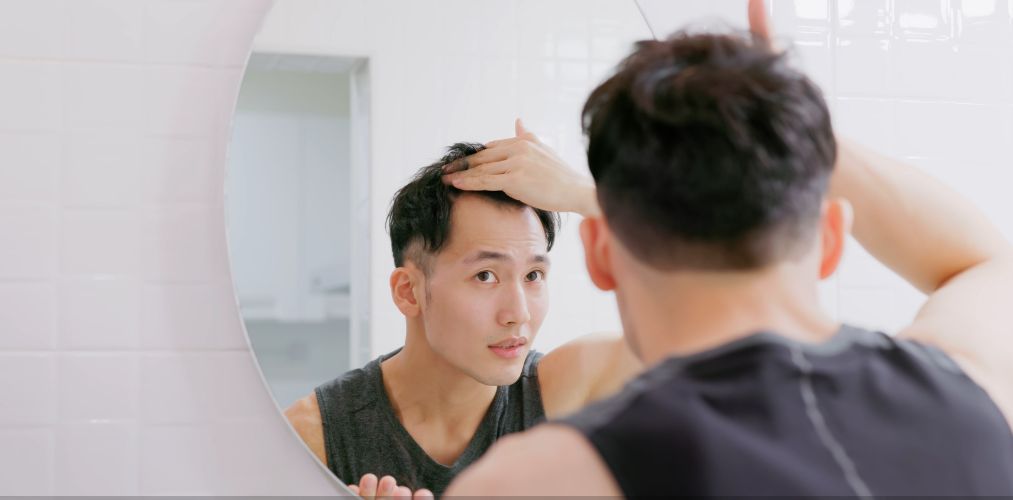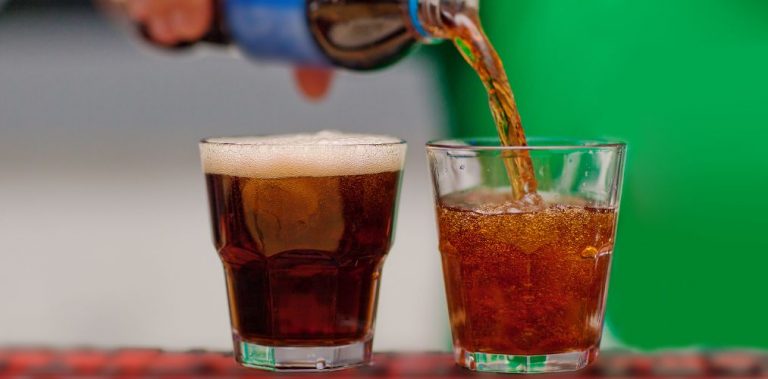What to Avoid and What to Choose
Alopecia Areata is an autoimmune disease that causes patchy hair loss. The exact cause isn't fully known, but it happens when the immune system attacks hair follicles by mistake. Managing this condition involves medical treatments, lifestyle changes and watching what you eat and drink. We’ll look at the worst drinks for Alopecia Areata, the best drinks to help and some treatment options.
Worst Drinks for Alopecia Areata
Here are some drinks to avoid:
1. Sugary Sodas
High-sugar drinks can lead to inflammation in the body, which may aggravate autoimmune conditions like Alopecia Areata.
2. Alcohol
Excessive alcohol consumption can weaken the immune system and disrupt hormonal balance, both of which are critical factors in managing hair loss.
3. Energy Drinks
Loaded with caffeine and sugar, energy drinks can increase stress levels and contribute to inflammation, which might exacerbate hair loss.
4. Artificially Flavored Beverages
Drinks with artificial flavors, colors and preservatives can trigger an immune response and potentially worsen Alopecia Areata symptoms.
5. High-Caffeine Coffee
While moderate caffeine can be okay, high-caffeine coffee can lead to increased stress and dehydration, both of which can negatively affect hair health.
6. Sweetened Teas
Similar to sugary sodas, sweetened teas can spike blood sugar levels and lead to inflammation, which may trigger or worsen hair loss.
7. Processed Fruit Juices
Many store-bought fruit juices are high in sugar and low in actual fruit content, making them another potential inflammation trigger.
8. Sports Drinks
Although marketed as healthy, many sports drinks contain high levels of sugar and artificial ingredients that can be harmful to your immune system.
Best Drinks for Alopecia Areata
Just as certain drinks can worsen symptoms, others can help manage them by supporting overall health and immune function. Here are some of the best drinks for Alopecia Areata:
Green Tea
Rich in antioxidants, green tea can help reduce inflammation and support a healthy immune system, which may benefit those with Alopecia Areata.
Herbal Teas
Teas like chamomile, peppermint and ginger can help reduce stress and inflammation, making them good choices for managing autoimmune conditions.
Water
Staying well-hydrated is essential for overall health, including hair health. Drinking plenty of water helps to keep your scalp hydrated and supports the immune system.
Freshly Squeezed Juices
Juices made from fresh fruits and vegetables, especially those rich in vitamins A, C and E, can help support hair growth and immune health.
Coconut Water
Coconut water is a natural hydrator and is packed with nutrients that support hair health, making it a great alternative to sugary sports drinks.
Aloe Vera Juice
Known for its soothing properties, aloe vera juice can help reduce inflammation and improve scalp health, which may benefit those with hair loss.
Smoothies
Blending fruits, vegetables and protein sources like nuts or seeds into a smoothie can provide a nutrient-rich drink that supports overall health, including hair health.
Bone Broth
Rich in collagen and amino acids, bone broth can support hair growth and overall immune function, making it a beneficial addition to your diet.
Treatment Options for Alopecia Areata
In addition to making dietary changes, there are several treatment options available for managing Alopecia Areata:
- Topical treatments: Corticosteroid creams, ointments and injections are commonly used to reduce inflammation and promote hair regrowth in affected areas.
- Oral medications: Some doctors may prescribe oral corticosteroids or other medications to help suppress the immune system and reduce hair loss.
- Light therapy: Also known as phototherapy, this treatment uses ultraviolet light to stimulate hair follicles and encourage hair regrowth.
- Immunotherapy: This involves applying a topical solution that triggers an allergic reaction, which can help stimulate hair growth in some cases.
- Lifestyle changes: Reducing stress, eating a balanced diet and getting regular exercise can all contribute to better management of Alopecia Areata.
Conclusion
While there is no cure for Alopecia Areata, managing the condition through careful dietary choices can make a significant difference. Avoiding drinks that cause inflammation or stress to the body is key, while opting for those that support hydration and immune health can help improve symptoms. Alongside these dietary adjustments, working with a healthcare provider to explore the best treatment options can help you manage the condition effectively and promote hair regrowth.

